Are you ready to embark on an exciting collaboration? Establishing a partnership through a memorandum of understanding (MOU) can set the stage for a fruitful relationship, laying down the framework for shared goals and mutual benefits. In this article, we'll explore the key elements of creating a solid MOU that reflects your unique objectives and values. So, grab your coffee, and let's dive deeper into the essentials of crafting a successful partnership agreement!
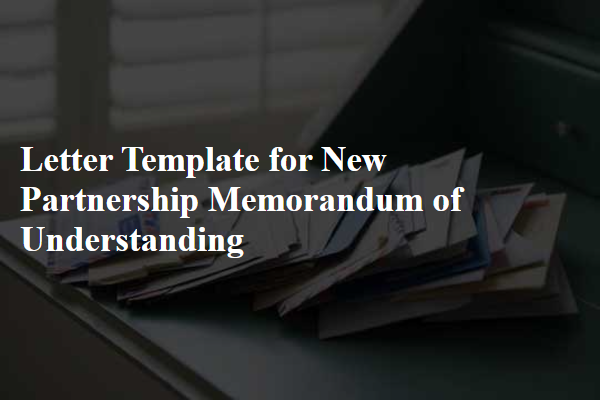
Introduction and Purpose
The introduction of a new partnership memorandum of understanding (MoU) aims to establish a collaborative framework between two or more entities, emphasizing shared goals and mutual commitments. This document outlines the purpose of the partnership, which typically includes enhancing operational efficiencies, leveraging resources, and fostering innovation. For instance, organizations in sectors such as education, healthcare, or technology may seek to align their strategies to improve community outcomes or advance research initiatives. The MoU serves as a foundational agreement that clarifies roles, responsibilities, and expectations, paving the way for effective cooperation and long-term synergy.
Scope of Partnership
The Scope of Partnership between two organizations delineates the collaborative efforts aimed at achieving mutual goals. This partnership engages in joint activities, leveraging resources like funding and expertise from both entities. Specific focus areas include research initiatives within environmental conservation, educational programs promoting STEM fields for underprivileged youth, and community outreach efforts enhancing local health awareness. Measurable outcomes will include a minimum of three community workshops per quarter, dissemination of educational materials to at least 500 students annually, and biannual reports assessing partnership impact. Additionally, this memorandum outlines responsibilities for maintaining clear communication channels and sharing progress updates regularly, enhancing transparency and accountability throughout the collaboration.
Roles and Responsibilities
A new partnership memorandum of understanding (MOU) outlines the distinct roles and responsibilities of each party involved. The primary stakeholders include organizations A and B, both committed to fostering collaboration in fields such as education, healthcare, or technology. Organization A, a leading institution with over 20 years of experience in community development, will focus on resource allocation, project management, and outreach initiatives. Organization B, recognized for its innovative research and development capabilities, will handle data analysis, program evaluation, and technical support to ensure project success. Both organizations will participate in regular meetings, provide progress reports, and adhere to established timelines to maintain accountability and ensure the effective implementation of shared goals. This collaborative approach aims to achieve measurable outcomes that benefit the community served by both parties, enhancing the overall impact of their efforts.
Confidentiality Clause
A well-defined confidentiality clause is crucial in a Memorandum of Understanding (MoU) to ensure that sensitive information shared between the parties, such as business strategies, trade secrets, financial data, or proprietary technologies, remains protected. This clause typically specifies the definition of confidential information, outlines the obligations of each party to maintain confidentiality, and includes exceptions where disclosure may be permitted, such as regulatory requirements or prior written consent. Moreover, it often establishes the duration of confidentiality obligations, which can extend beyond the term of the MoU, emphasizing the importance of securing the trust and integrity within the partnership. Enforceability is enhanced by clearly stating consequences for breaches, ensuring that both parties understand the importance of safeguarding shared information.
Term and Termination Conditions
Establishing term and termination conditions in a memorandum of understanding (MOU) between parties sets clear expectations for the duration and exit strategies of the partnership. Typically, the term of the MOU may last for a period of one year, commencing on the effective date, which is specified in the document. During this period, either party may initiate a review meeting at six months to assess partnership progress and determine if the term should be extended. Termination conditions may include a 30-day written notice requirement for either party wishing to withdraw from the agreement. Additionally, termination may occur immediately upon breach of significant terms, such as confidentiality or financial obligations. Any outstanding obligations, including payment for services rendered prior to termination, must be settled within 60 days. The agreement may also stipulate that any intellectual property developed during the partnership shall remain with the originating party unless otherwise agreed in writing.

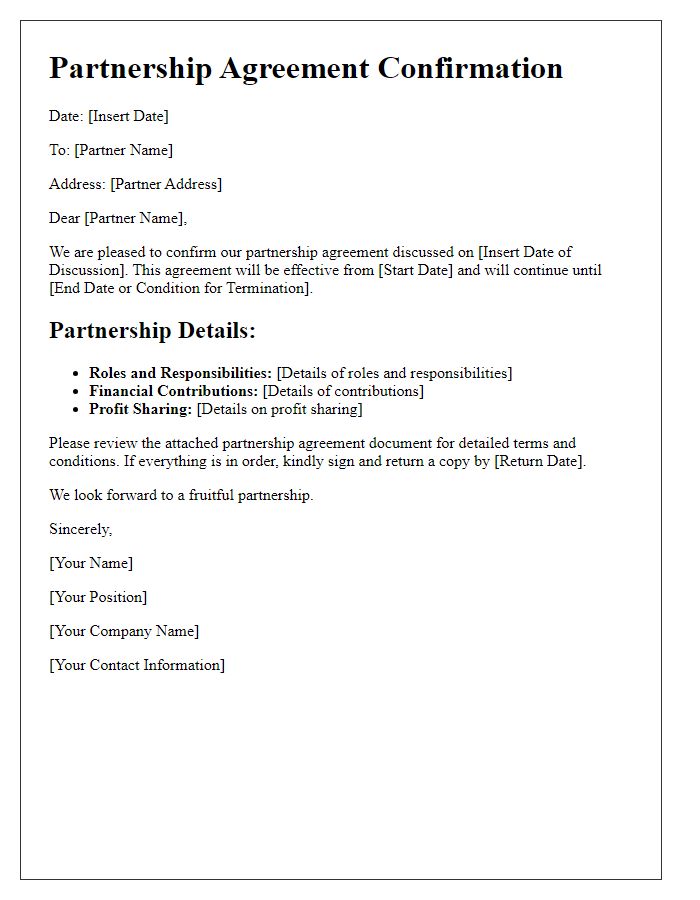
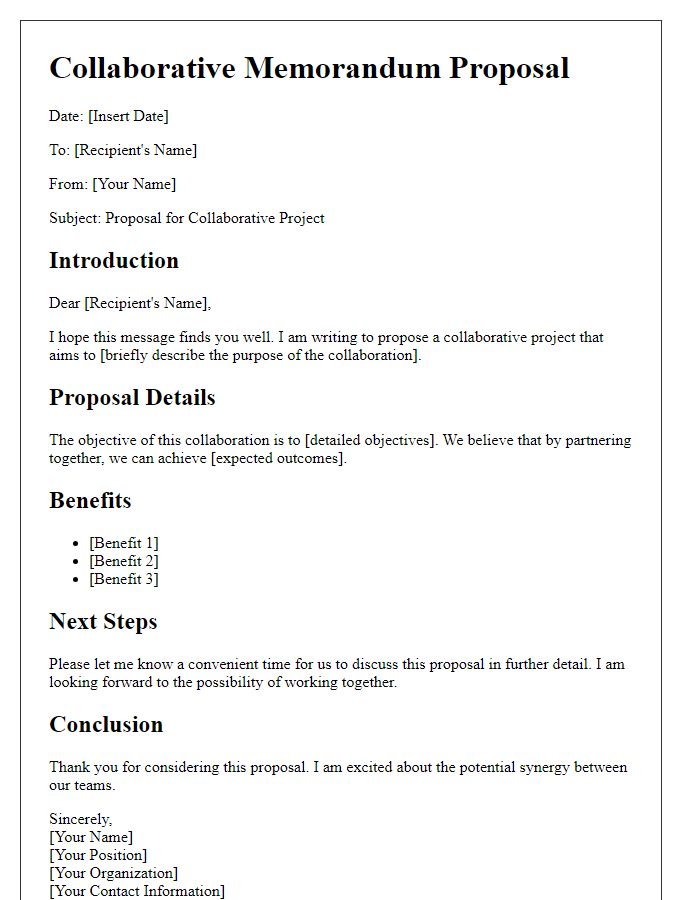
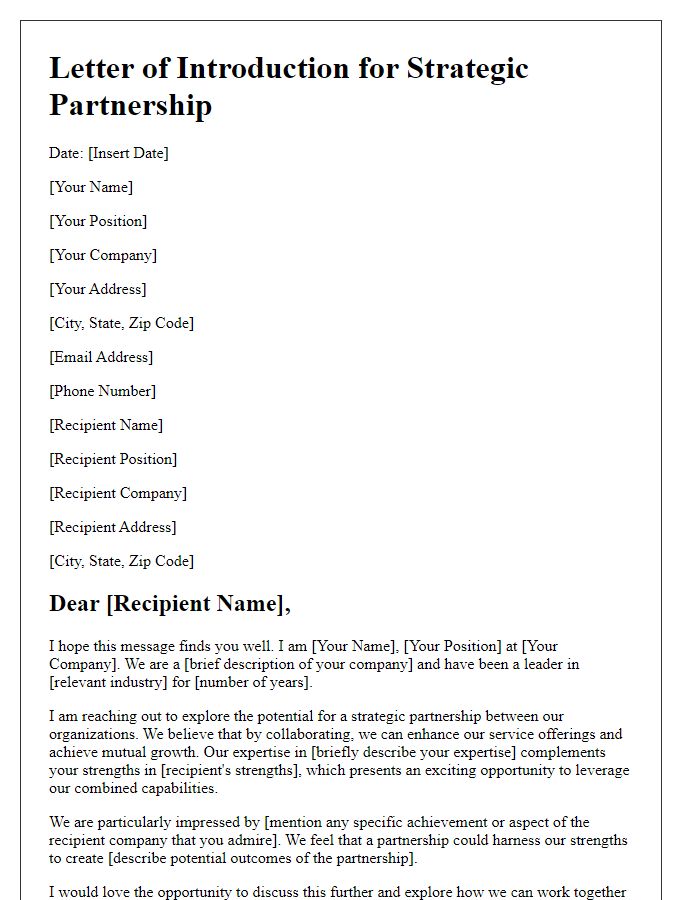
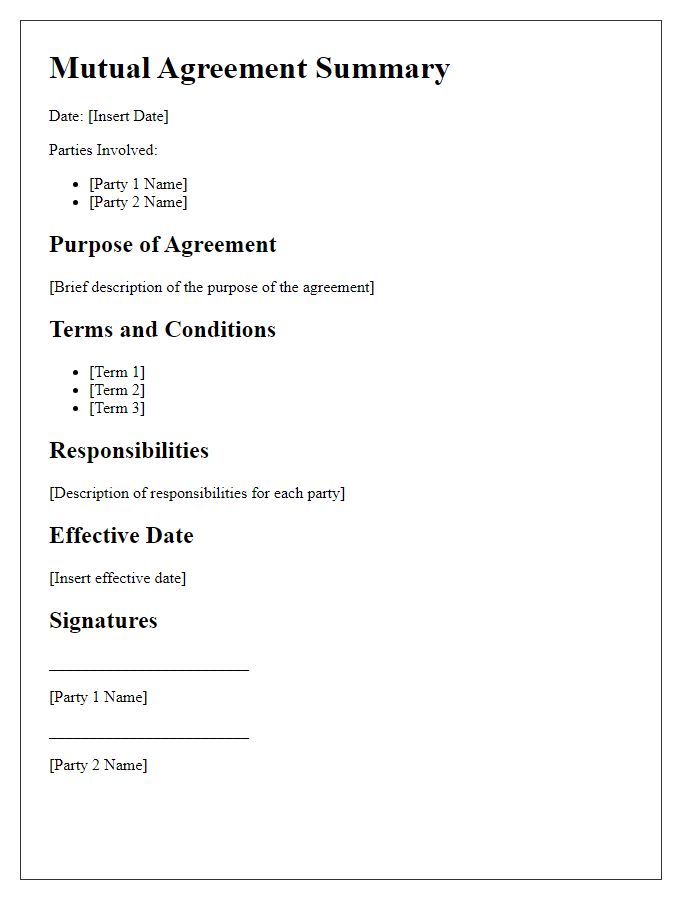
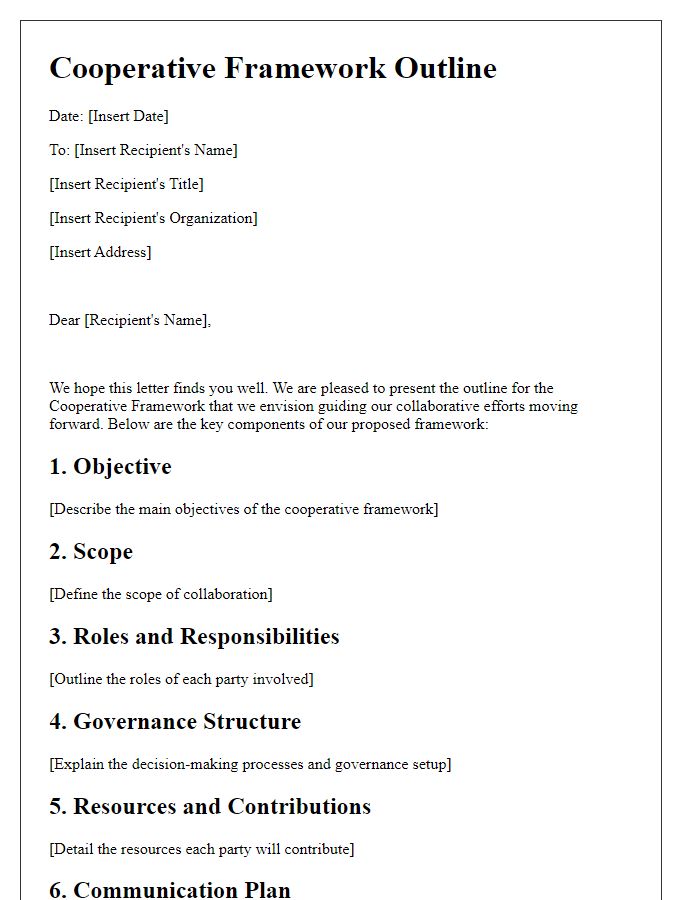
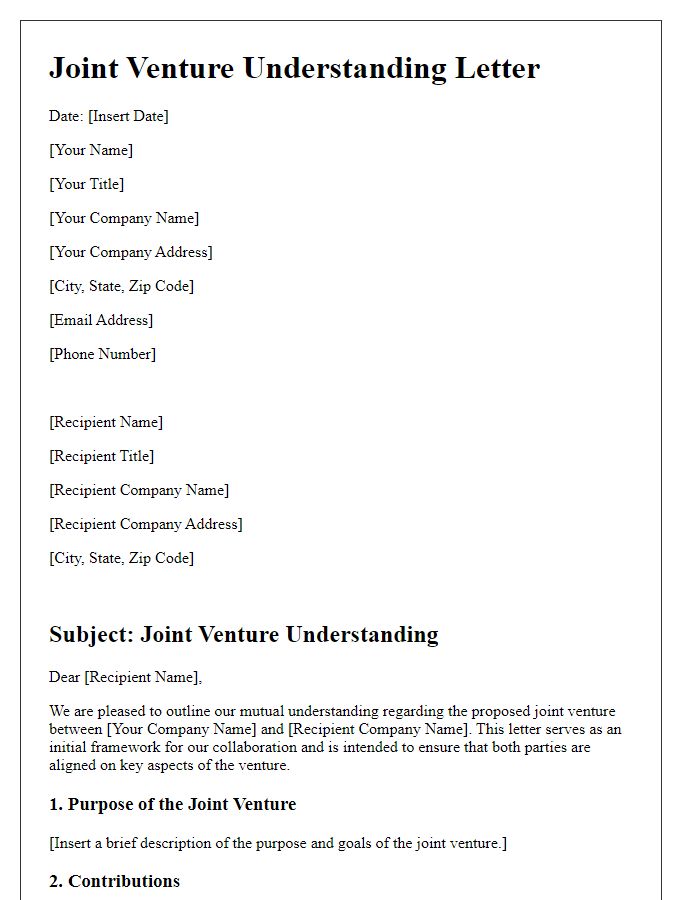
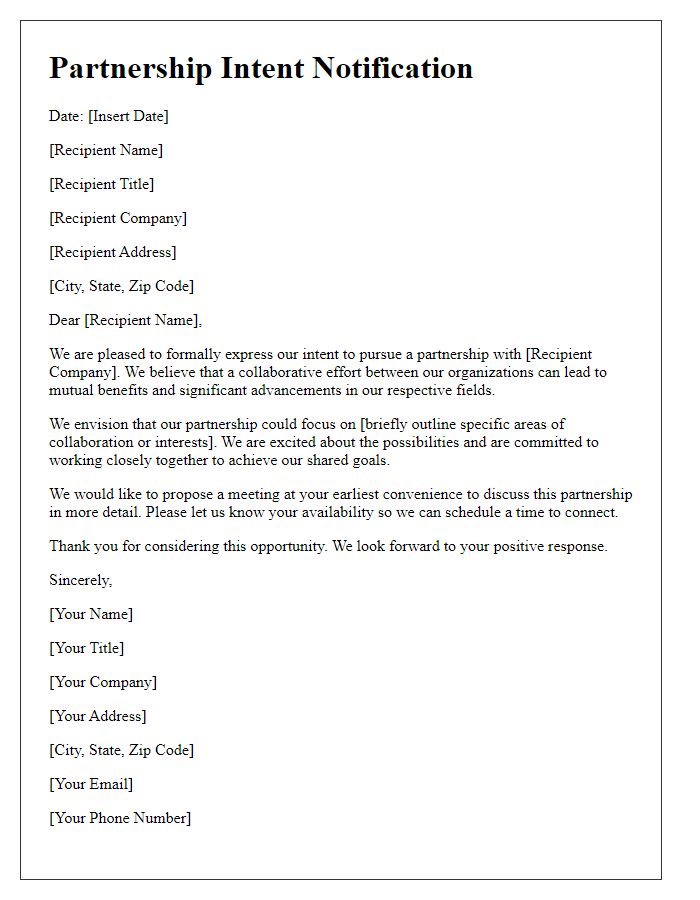
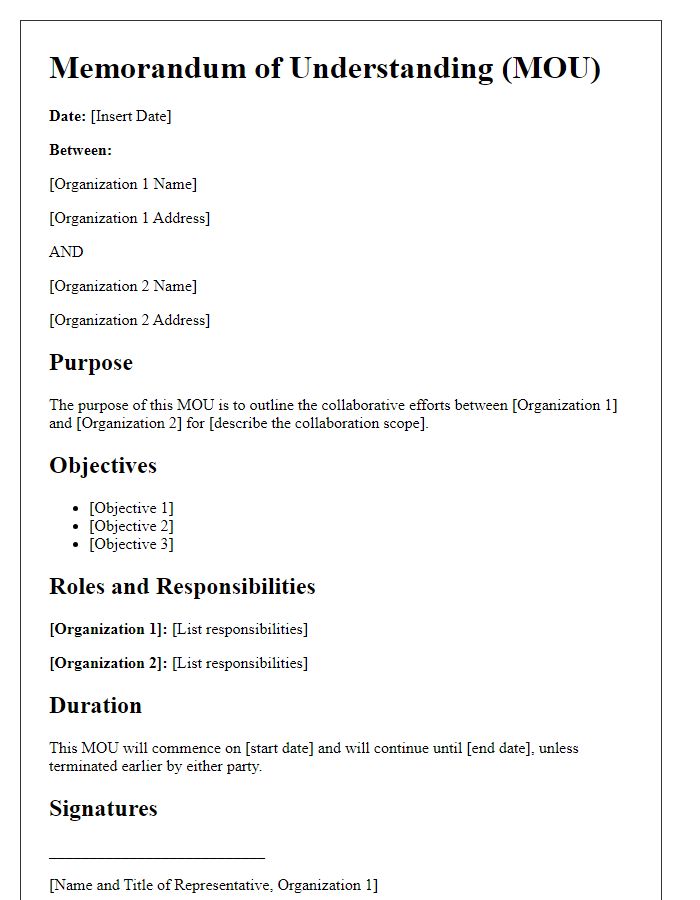
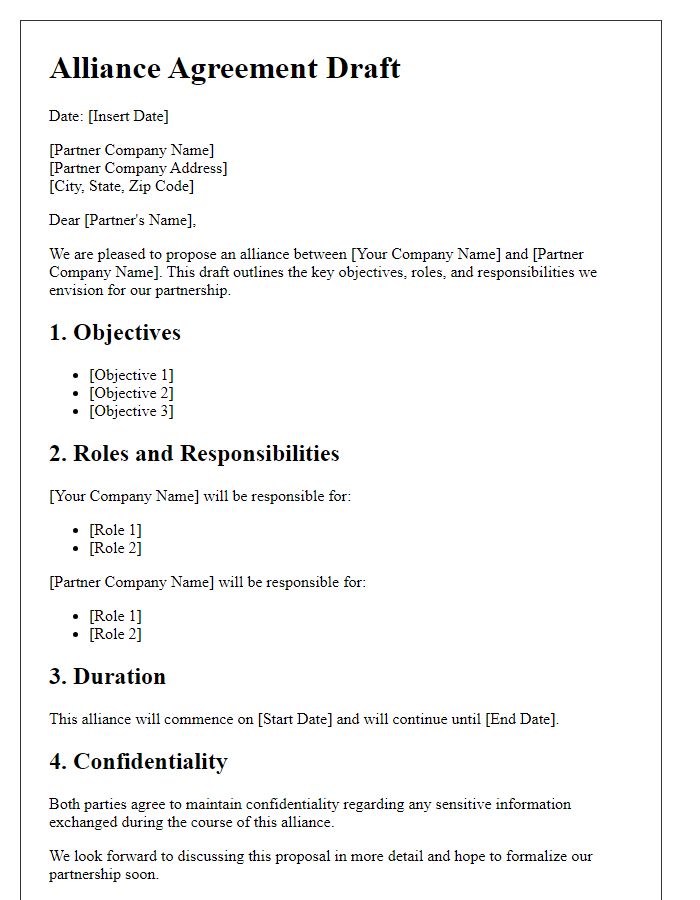
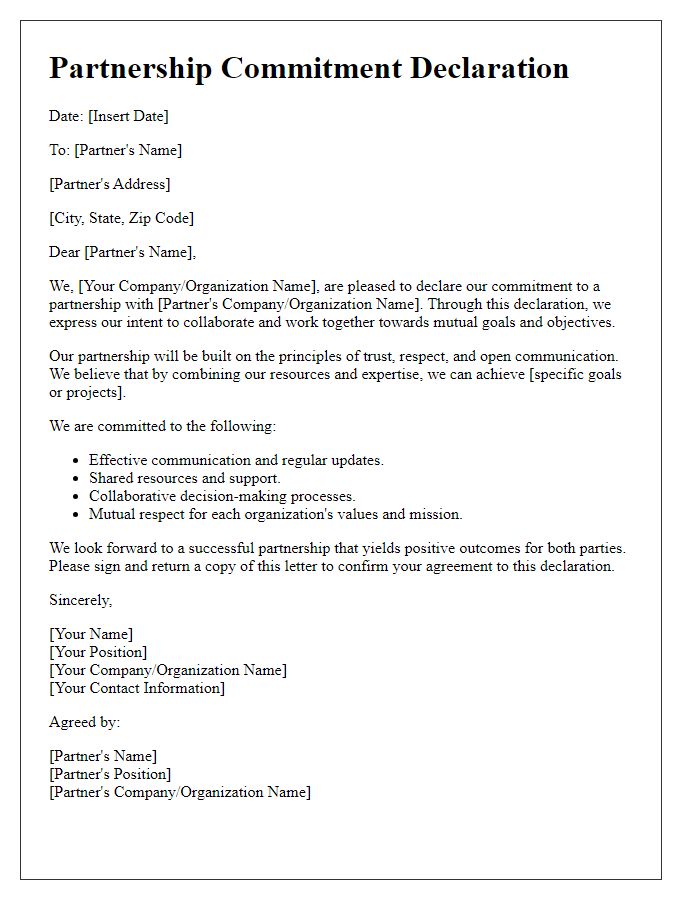


Comments